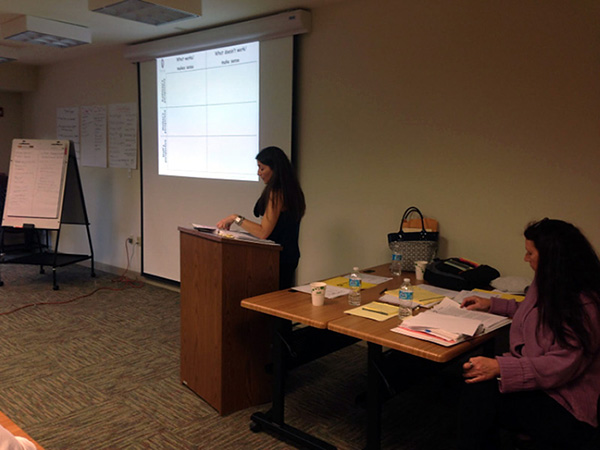Person Centered Thinking
Contributed by Monica Robinson and Jeannie Werber

Here we go again, is what most of us are thinking. First we were trained in CQL and POMs now it’s PCT and PCP.
The difference with Person Centered Thinking (PCT) is that it is an internal tool not external. It cannot be touched or documented. It is a thought and feeling of what we are here to do. So even if this focus on Person Centered Thinking was to be “a phase” (which it is not because it will soon be regulated) we should embrace it for just being the right thing to do. We often talk about how the communities outside of NHR treat “our people” poorly yet out of love we keep them different and not equal to everyone. We were taught to protect and fix not to listen and learn.
Person Centered Thinking can change all of that, though it is not as easy to teach as we might want to believe. At least in the beginning, we will need to make a conscious effort to use this skill in some way every day. It is essential to the people we support that all staff hone this skill. Once it is fully embraced you will see where we have been falling short for years. Some simple examples are: someone is grumpy that lives in one of the homes and our response is “he has been like that for years that is just who he is” when we should look at the why he is always grumpy and what can we do to assist, we put people into programs when we should develop programs for people, thinking we know what is best for people we support instead of remembering the person or those closest to them know what is best. Simply asking people if they are happy, is not enough to learn what they want their life to be like. Of course we feel good when people say yes, but we should be looking at not only what people say with their words but also what they are communicating with their actions.
Gaining listening skills to ensure that the person is in control of their life and supporting people to make decisions or coming up with their own answer not us doing it for them. We often believe that we know the people we support so well that we make decisions for them or tell them what is best without even talking to them first. We are great fixers and problems solvers. Asking someone what they think is best knowing that it may conflict with what we think, transforms us from fixers and problem solvers to Person Centered Thinkers. An important part of Person Centered Thinking is asking the right questions and knowing there is always more to learn about a person. Shifting our thoughts from professional to an explorer of a person is a good way to ensure we are using Person Centered Thinking skills.
Person Centered Planning (PCP) is the process in which to capture learning. What we have learned through the planning process is then highlighted in an Individualized Service Plan &/or Support Plan for the support team to see and follow. A well-developed plan should help to ensure we are meeting expectations of those we support. Person Centered Planning encapsulates CQL, POMs and PCT all into one. CQL ensures the quality of services provided, POMs evaluates how well we are providing those supports and PCT ensures we always think person first. Together, with those we support leading us; we can be a powerful and successful team. In turn, NHR will continue to grow and maintain its longstanding and well earned reputation for providing quality supports.